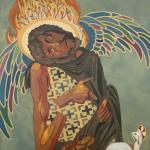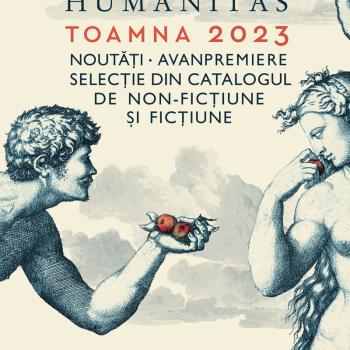Historians and Easter
Historians and Easter do not relate to one another in the same manner as either apologists and Easter or theologians and Easter. Apologists try to demonstrate that a bodily resurrection happened in a way that leaves no room for doubt. Theologians often assume the resurrection as event while setting aside as non-essential matters the precise details of what actually happened.
The historian or other historical scholar, however, cannot bypass questions about what happened. That’s the very essence of our work. And yet the resurrection is, like creation, a matter to which our tools cannot apply. In short, the tools of historical study evaluate probabilities. Whether God acted not merely to restore a dead man to life, but to bring him into the life of the age to come, is not something that one can discuss in terms of historical probability.
Grand Scheme of Things
There are certainly philosophical considerations that pertain to probability. That at least one universe that brings life into being within it should come into existence seems unlikely, yet we know it has happened. Within that framework, there is nothing inherently improbable about a new creation beginning.
Yet that is metaphysics, the stuff of philosophers and theologians. Historians deal with cause and effect within the universe. There is a lot that is improbable in terms of it happening to any one individual in any one place, but that is not inherently improbable in the grand scheme of things. Examples include winning the lottery, your friend showing up at your house right when you need to talk to them, or the winds turning in a way that change the course of a sea battle at a decisive moment.
The Tools of History
Many interpret such things as providence, and that is exactly the sort of theological interpretation that a historian cannot offer. But historians can conclude that someone won the lottery. That is a different sort of event than an individual entering the life of the kingdom of God. We know people win the lottery. Nothing in prior history can allow one to say that a unique resurrection of this sort is possible, even if improbable. It is a matter that can only be answered in terms of one’s theological worldview.
So where does that leave historians and Easter? Historians are not just left to comment on Easter as a historical celebration, perhaps usefully debunking the incorrect yet widespread notion that it was originally a pagan festival. We can ask about the details of what people experienced, even if the tools of history don’t allow us to comment as historians on what God did or did not do.

Eleven Remaining Apostles
It is precisely the details of the Easter experiences as related in the Gospels (and also 1 Corinthians 15) that make it impossible for a historian (or any honest person, in my opinion) to claim that they can prove the resurrection “beyond doubt.”
The earliest account of the Sunday after the crucifixion, in the Gospel of Mark, does not involve anyone seeing Jesus. What most likely followed was something like what we find in John 21, where there is an encounter with an individual who apparently doesn’t look like Jesus, and yet they are persuaded is him. In Matthew, the eleven remaining apostles see Jesus and worship, “but some doubted.”
Always Remain Open to Rethinking
As a historian who is a Christian, someone who is determined to try to follow the evidence honestly, this leaves so many questions, but it does answer some. The kinds of experiences that the early believers had were not fundamentally different from the kinds of experiences that I and others continue to have today. That was initially unsettling for me. Ultimately, however, it proved liberating. Rather than having to try to prove what did or did not happen to a corpse 2000 years ago, I can do what Christians have always done. Tell my story, wrestle with the implications of my experiences, and hopefully always remain open to rethinking what those things mean existentially and theologically in light of new evidence.
Passion and Resurrection
So what do I recommend for Easter, as I wish you a happy one (and then pass the baton to theologians and preachers to take over where historical investigation leaves off)? I recommend music, something that will allow you to explore the numinous and mysterious character of what happened not necessarily on one particular Sunday in the first century and certainly not just then, but all of which combined to give rise to resurrection faith. For me, Ēriks Ešenvalds’ Passion and Resurrection does this particularly well. As a scholar of the Gospel of John and one who wrestles with the historical questions related to Easter, you’ll understand why I find the ending of this piece particularly powerful.
I also share my friend Daniel Gullotta’s new article about his own faith journey. My book Beyond Deconstruction (due out next year) will tell more of my own journey than I have in any other book I’ve written thus far, although in The Burial of Jesus I shared my journey of wrestling with precisely the topic of today’s post, namely the inability of historical tools to answer what I had been taught to believe were the most important questions related to Jesus.
Most importantly, I recommend putting faith in God, even as Jesus did in his darkest hours. Matters of the afterlife have always been about hope, not certainty. In the origin of their Jewish and subsequently Christian forms, the driving impetus was justice. Will evil prevail? If you have the courage to hope that good can win, that love can conquer hate, then you have a form of faith appropriate to Easter. The details of how you express it, how you relate it to historical and theological discussions, is up to you. For today, I recommend just celebrating that hope, that trust, and finding others who share your faith to celebrate with.













